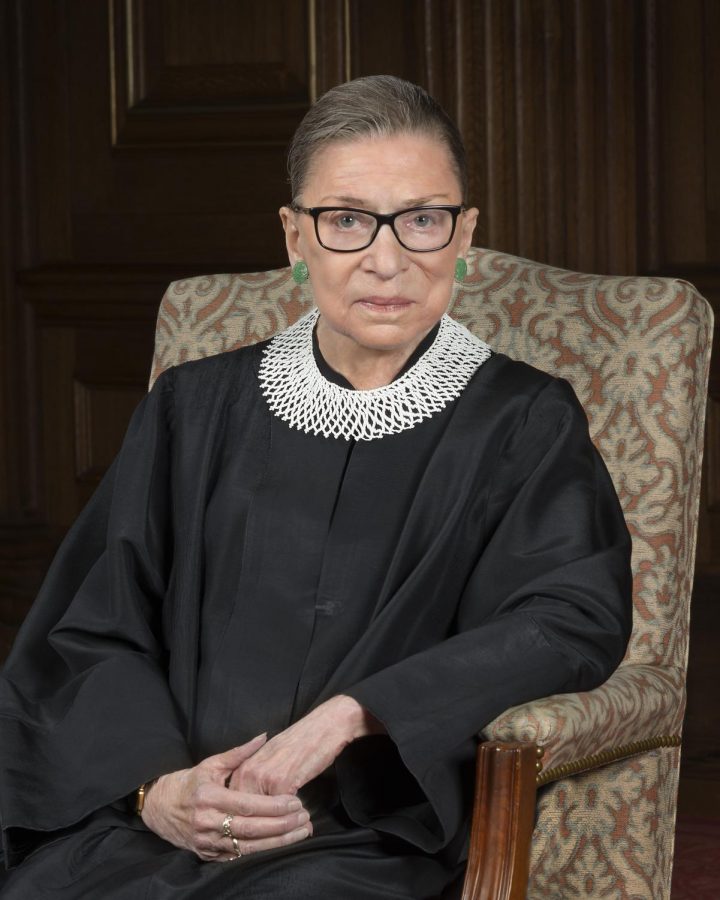A Tribute to Supreme Court Justice Ruth Bader Ginsburg
September 28, 2020
Supreme Court Justice Ruth Bader Ginsburg, whose perseverance and strength of character allowed her to persist through everything that was thrown at her, died on Friday, September 18th at the age of 87. Her impact on this world was immeasurable and her achievements and character will not be forgotten.
Ginsburg’s impressive education marked the beginning of her monumental career. She graduated at the top of her class from Cornell University in 1954 and continued her education at Harvard Law School, where she faced gender discrimination as one of the nine women in her 500-person class. In addition to Ginsburg’s education, her family life remained very important to her. She married Martin Ginsburg in 1954, and became a mother before starting law school. Although she faced much judgment and discrimination, this didn’t stop her from attending to her family duties and simultaneously maintaining her position at the top of her class. She later transferred to Columbia University and graduated at the top of her class in 1959.
Upon graduating, Ginsburg encountered difficulties finding acceptance in her predominantly male-dominated field. In 1963 she was hired as a professor at the Rutgers University School of Law and later at the Columbia University School of Law, where she became the first female professor to receive tenure.
Ginsburg also served as a major proponent of gender equality. As a strong supporter of the Equal Rights Amendment in the 1970s and later initiating The ACLU Women’s Rights Project in 1972, she helped remove the barriers of sex discrimination.
In 1980, President Jimmy Carter appointed Ginsburg to the U.S. Court of Appeals for the District of Columbia, where she served as a judge for 13 years until Bill Clinton appointed her to the U.S. Supreme Court in 1993. Ginsburg’s political career was always of utmost importance; through her chemotherapy for pancreatic cancer, surgery for colon cancer, and husband’s death in 2010, she never missed a single oral argument.
Throughout her career, Ginsburg remained a large proponent of women’s reproductive rights and the “Me Too” movement. In 2003, Ginsburg spoke on her beliefs of affirmative action, stating that “actions designed to burden groups long denied full citizenship stature are not sensibly ranked with measures taken to hasten the day when entrenched discrimination and its after-effects have been extirpated.”
Ginsburg often spoke about how her Judaism allowed her to empathize with other minority groups. In 2017 she said, “the Jewish religion is an ethical religion. That is, we are taught to do right, to love mercy, do justice, not because there’s gonna be any reward in heaven or punishment in hell. We live righteously because that’s how people should live and not anticipating any award in the hereafter.”
Ruth Bader Ginsburg, even in her death, is making history and will be the first woman and Jew to lie in state at the Capitol. Whatever one’s political beliefs are, there is no denying Ginsburg’s monumental career and influential tenacity. Her legacy will resonate in our memories for a long time to come.

















































































































































